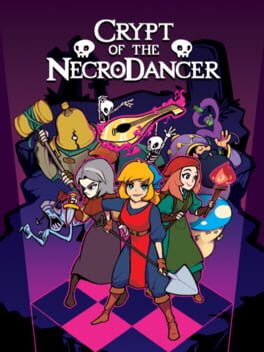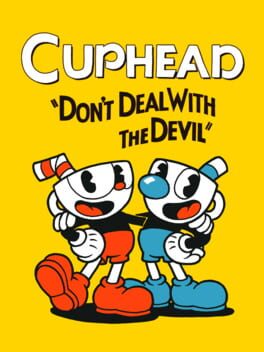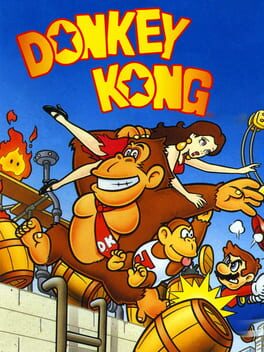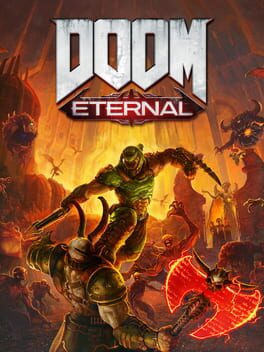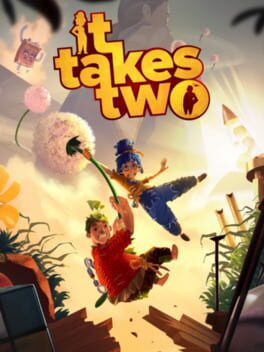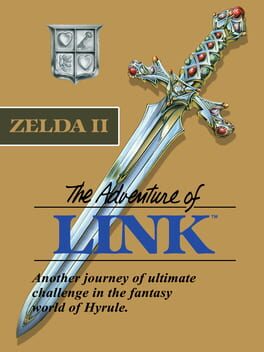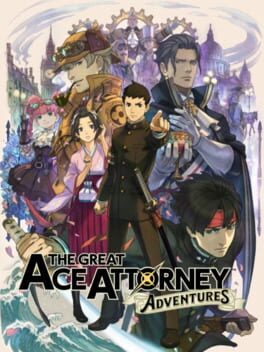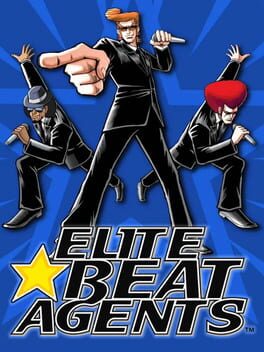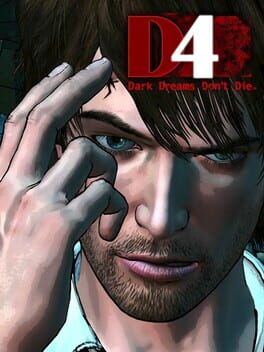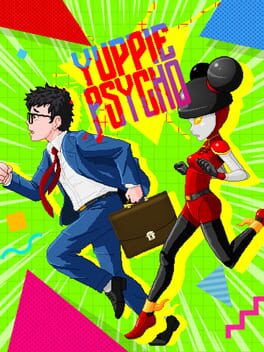chump
2019
Broadly speaking, challenge design in video games tends to revolve around one of two concepts, let's call them "newness" and "oldness." We can represent these two schools with opposite ends of the spectrum: an entirely contextual puzzler like Myst, where your ability to progress is synonymous with your ability to synthesize unfamiliar information, and a single-screen arcade game like Tetris, in which every possible mechanical outcome is immediately apparent and instead it's on the player to react to a rapidly changing state. Though these are extreme examples, as a general rule newness-focused games are less enjoyable when they become old, and oldness-focused games are less enjoyable while they're still new. Unless you manage to wipe your memory, there's not much to get out of Myst on a second run, and, conversely, the foremost tenant of traditional game design is to limit newness as much as possible- Tetris's extraordinary staying power is thanks to it accomplishing this more effectively than any of its peers. Resident Evil is unique in that it's disjointedly designed to harness both newness and oldness: your first playthrough centers around figuring out your goal, hunting for supplies, and traversing the unknown, and everything that follows sees you using your preexisting knowledge of Spencer Mansion's layout to route through it as efficiently as possible. Functionally, that's why there's two protagonists with slightly diverging paths, so a higher percentage of players will complete the game more than once and thus experience both sides of the medallion. It's also why the remake's addition of crimson heads is downright transformative. At first, they're another layer of obstacles that takes you by surprise, even if you've played the original game, and, on revisit, the sense of paranoia that they induce becomes a major wrinkle in how you approach the game's opening hours. Crimson heads are spooky when you don't know they're coming, and they're still spooky when you know they're coming, which best sums up the game's two-way design philosophy. What makes Resident Evil special even among other games that attempt something similar (Super Metroid and Dark Souls come to mind) is that, outside of getting used to its tank controls, there's pretty much no motor skill required. Cover to cover, it's entirely a brain game, and, at its best, it can feel like a constantly shifting set of puzzles and solutions.
I've never much cared for the original Resident Evil 2, mostly because of how it upsets the balance between newness and oldness. My theory is that Kamiya & co. didn't think they could pull off both without feeling derivative of the first game, and instead decided to focus primarily on the new. The RPD HQ is gorgeous but its long, looping hallways make it so there's usually a "correct" path to take at all times, and it's still by far the most well designed of the three locations you visit. Weapon upgrades, puzzle boss fights, and that one window shutter mechanism are all neat but don't feel like they add much to the experience on a deeper level, and the addition of a dedicated "B" campaign means that the newness continues into a replay- let's not forget that Tyrant originally doesn’t show up until your second run. With twenty years of available technological improvements, I fully expected 2's remake to pile on the newness even further, and ink ribbons not being present in the intended difficulty (which is kind of absurd in its own right) was an early sign that I might’ve been correct. But, surprisingly, I enjoyed my second run much more than my first. Part of this is because the added newness often misses- some cool puzzle elements are overshadowed by too many predictably cinematic moments, and everything that happens while transitioning between locations is pretty awful. The boring Ada & Sherry sections, that bizarre crocodile chase that feels straight out of RE4 (in a bad way), having to dodge G’s claws for like five minutes before getting to fight him in the sewers, and that melodramatic “my daughter’s a zombie” cutscene that feels straight out of The Last of Us- getting reminded that people care about, like, the overarching story of Resident Evil always gives me a bit of whiplash. Despite the sewers being significantly streamlined from the original, this stuff breaks up the flow even more egregiously because of how smoothly things were going directly beforehand. But, for me, the game’s lowest point came when I was killed by a licker for the first time and was immediately greeted with a loading screen tip that told me to walk slowly, which canceled out any potential newness that lickers might’ve offered and ensured that I was virtually never bothered by one ever again. That is, until I ran into a licker while I was being chased by Tyrant- forcing you into a situation where you have to modulate your movement speed is a good example of how the game eventually starts to shine. While I prefer the precise, robotic nature of the earlier games’ tank controls, RE2’s remake embraces the scramble. Planning and strategizing, here, are less fun than going in gung-ho, kneecapping zombies on reflex, and picking up items out of desperation rather than out of foresight. It feels like a full realization of the original game’s more action-focused dreams that weren’t attenable in ‘98: being able to damage individual body parts, enemies that are free to move into adjacent rooms, and having to listen for groans and footsteps while running for your life all make for an intense, fast-paced siege and help to alleviate the more linear level design even if they don’t totally make up for it. Does it come close to either version of RE1 for me? No. But it’s a damn good entry in the series. And, most importantly, it transformed a game I never clicked with into one that I ended up enjoying. If that doesn’t qualify it as a great remake, then nothing ever could.
I've never much cared for the original Resident Evil 2, mostly because of how it upsets the balance between newness and oldness. My theory is that Kamiya & co. didn't think they could pull off both without feeling derivative of the first game, and instead decided to focus primarily on the new. The RPD HQ is gorgeous but its long, looping hallways make it so there's usually a "correct" path to take at all times, and it's still by far the most well designed of the three locations you visit. Weapon upgrades, puzzle boss fights, and that one window shutter mechanism are all neat but don't feel like they add much to the experience on a deeper level, and the addition of a dedicated "B" campaign means that the newness continues into a replay- let's not forget that Tyrant originally doesn’t show up until your second run. With twenty years of available technological improvements, I fully expected 2's remake to pile on the newness even further, and ink ribbons not being present in the intended difficulty (which is kind of absurd in its own right) was an early sign that I might’ve been correct. But, surprisingly, I enjoyed my second run much more than my first. Part of this is because the added newness often misses- some cool puzzle elements are overshadowed by too many predictably cinematic moments, and everything that happens while transitioning between locations is pretty awful. The boring Ada & Sherry sections, that bizarre crocodile chase that feels straight out of RE4 (in a bad way), having to dodge G’s claws for like five minutes before getting to fight him in the sewers, and that melodramatic “my daughter’s a zombie” cutscene that feels straight out of The Last of Us- getting reminded that people care about, like, the overarching story of Resident Evil always gives me a bit of whiplash. Despite the sewers being significantly streamlined from the original, this stuff breaks up the flow even more egregiously because of how smoothly things were going directly beforehand. But, for me, the game’s lowest point came when I was killed by a licker for the first time and was immediately greeted with a loading screen tip that told me to walk slowly, which canceled out any potential newness that lickers might’ve offered and ensured that I was virtually never bothered by one ever again. That is, until I ran into a licker while I was being chased by Tyrant- forcing you into a situation where you have to modulate your movement speed is a good example of how the game eventually starts to shine. While I prefer the precise, robotic nature of the earlier games’ tank controls, RE2’s remake embraces the scramble. Planning and strategizing, here, are less fun than going in gung-ho, kneecapping zombies on reflex, and picking up items out of desperation rather than out of foresight. It feels like a full realization of the original game’s more action-focused dreams that weren’t attenable in ‘98: being able to damage individual body parts, enemies that are free to move into adjacent rooms, and having to listen for groans and footsteps while running for your life all make for an intense, fast-paced siege and help to alleviate the more linear level design even if they don’t totally make up for it. Does it come close to either version of RE1 for me? No. But it’s a damn good entry in the series. And, most importantly, it transformed a game I never clicked with into one that I ended up enjoying. If that doesn’t qualify it as a great remake, then nothing ever could.
This review contains spoilers
Eighteen years on and Shadow of the Colossus remains my platonic ideal of triple-A gaming: it's spectacle-driven but not cinematic, it's broadly appealing but not dumbed down, and, most importantly, it uses its budget not to simply refine or increase the scope of an existing experience, but to deliver an entirely new one. My PS2 audibly groans while running this game, the framerate slows to a crawl if I move the camera around too quickly, and the environmental pop-in is too frequent to ignore, but I don't see these things as technical faults, instead as the signatory of hardware being pushed to its absolute limits in trying to accommodating a game that, on a conceptual level, was unimaginable a single console generation prior. But a great concept means nothing without great execution, so it works out nicely that taking down a colossus is still one of the most satisfying feelings in video games as a whole. Utilizing your rigid movement to maneuver across the back of a creature a thousand times your size, risking letting go for just a moment to preserve your stamina, narrowly avoiding getting shaken off, and then plunging your sword deep into its Achilles heel while that magnificent orchestra plays in the background... unmatched. And yet, at times, what's most impressive to me about Shadow of the Colossus is its restraint. Considering Ico was pretty much restraint incarnate, that statement sounds ironic, but the connotation of your controller's rumble shifting from clinging onto another's hand to clinging onto a gargantuan monster for dear life should tell you that the two have almost nothing in common besides their developer. Ico was a puzzle game where nothing felt like a puzzle, and Shadow of the Colossus is an action game where every encounter feels like it has a clean-cut solution, which is the point. I can imagine that, during development, it was tempting to give every colossus an epic-sounding name and have it appear in big, bold lettering before each fight, to paint them as ultra-powerful gods, to make them capable of arena-clearing attacks. Considering nearly every boss in video game history is crafted with one singular goal in mind- to be intimidating- it's incredibly bold for a game solely composed of boss fights to go in the complete opposite direction. Despite the size advantage it never feels like you're the underdog, but, rather, the inverse- that the colossi don't have the necessary tools to deal with you. Aside from the very last one, they're characterized less like ancient, mythical beings, and more like livestock unaware they're in line to be slaughtered. You could argue that tracking down the colossi in the overworld should be more involved, but I'd contend that having a magical sword point all of them out for you is a good capstone of the unfair advantage you have over them as a whole. Every fight has least one major revelation that's a joy to figure out (who could forget your first time jumping onto number five's wings directly instead of avoiding its swoop, seeing the red eyes of number ten emerge from the sand, or goading number twelve into revealing its underbelly?) but that also reinforces that you're simply above these creatures, that the only shadow they cast over you is in the most literal sense possible. It's a beautiful theme, and it often even makes you question why you're doing what you're doing... which just makes the ending that much more disappointing. Dormin's dialog was already a problem just considering the indefensible mid-battle hints, but he takes it to another level following number sixteen's defeat, and I blame Shadow of the Colossus's (comparatively) high amount of exposition for the fact that Ico better captures my imagination. What's frustrating is that Wander potentially being in the moral wrong is communicated entirely through gameplay, but we're still given a concrete reason as to why he should regret slaying the colossi. Maybe I'm being harsh, but I feel like this was the starting point for the modern trend of chastising the player for their in game actions, of games employing talking skeletons and men in chicken masks to tell you that you should feel bad instead of actually making you feel bad. But to focus on the ending is to take away from a landmark experience, from one of the most evidently great games out there. In a just world we'd see consistent, high-budget releases from game designers with a even a fraction of Ueda's visionary talent, but in our cold reality, gaming can only live in his shadow.
2018
One of the most well-designed platformers in recent memory. The way mechanics are introduced, taught to the player, and integrated with other mechanics is masterful. Not every mechanic is a winner, but the overall difficulty curve is executed very well while still keeping a satisfying amount of a sort of puzzle-solving in the platforming. It seems like I'm in the minority in disliking the B- and C-sides because they stray away from the pseudo-puzzle elements of the main levels and instead focus more on muscle memory and getting your run to be absolutely perfect, which I call the Super Meat Boy zone. Evidently, these levels are optional so I can't consider them a negative.
Celeste's theming is something that feels almost complete. It's a game that's about intrinsic reward. There's no reason to climb a mountain other than to prove to yourself that you can do it. There's no reason to collect strawberries other than to prove to yourself that you can do it. The third parallel that should be here is in regards to the story. It seems like every indie game that attempts to have some sort of message these days makes it about mental illness, and Celeste is one example. Although it's overdone, it can still be done well, but I don't feel as though this game does. Celeste's symbolism is frustratingly hamfisted- the story never misses an opportunity to belligerently inform the player of a character's inner anguish or their work to overcome it. The worst of this happens during a cutscene on a gondola, where it's basically outright said what Madeline's evil counterpart represents, something that isn't difficult to pick up on in the first place. It's a game that's purposefully simplistic, in gameplay and in your character's goals, and I wish the story reflected this. I feel as though the game's message would be a lot more effective had a good portion of the dialogue been cut.
Celeste's theming is something that feels almost complete. It's a game that's about intrinsic reward. There's no reason to climb a mountain other than to prove to yourself that you can do it. There's no reason to collect strawberries other than to prove to yourself that you can do it. The third parallel that should be here is in regards to the story. It seems like every indie game that attempts to have some sort of message these days makes it about mental illness, and Celeste is one example. Although it's overdone, it can still be done well, but I don't feel as though this game does. Celeste's symbolism is frustratingly hamfisted- the story never misses an opportunity to belligerently inform the player of a character's inner anguish or their work to overcome it. The worst of this happens during a cutscene on a gondola, where it's basically outright said what Madeline's evil counterpart represents, something that isn't difficult to pick up on in the first place. It's a game that's purposefully simplistic, in gameplay and in your character's goals, and I wish the story reflected this. I feel as though the game's message would be a lot more effective had a good portion of the dialogue been cut.
For me, I think what kills the roguelike, or at least its modern incarnation, is that it hardly ever feels like what you're actually doing is all that interesting. The prominent entries of the genre are mostly barebones twin-stick shooters and top-down hacks-and-slash where the only skill that you end up learning is the ability to remember what hundreds of different enemies and upgrades do, a feat better accomplished by crawling the wiki than the dungeon. The assertion that roguelikes are the successors to arcade gaming has always been lost on me, because, in my eyes, they're really polar opposites. The best arcade games tend to have complex (but often deceptively simple) movesets and extremely basic, easily-digestible enemy types, a legacy that Cadence fulfills better than any of her peers. By default, all it takes to play Necrodancer is the four arrow keys, and yet it's able to create a sickeningly high skill ceiling, in no small part due to the crypt's inhabitants, or, more accurately, their simplicity. Enemies in this game are so absurdly basic that their AI can usually be described in less than a single sentence, meaning they don't pose any semblance of a threat by themselves. Instead, the challenge comes from clearing out a room full of them, using a set of mechanics that's, in essence, a tactical RPG where you should always be able to know what each of your opponents are going to do on their next turn. But therein lies the rub, and the justification for the light rhythm elements, because you're only given a fraction of a second to analyze each situation. The end result is an inherently fair experience- if you die, it's because your processing power isn't fast enough, not because you're unfamiliar with any of the rules. Upgrades uphold this by entirely being simple +1s to your attack, range, defense, health, or some other self-explanatory factor, but their lack of complexity doesn't stifle how much minute creativity is involved. Cleverly carving out more room for yourself, getting a dragon to take out enemies for you, or breaking a barrel with a trap to save your only bomb. All part of a language that you can feel yourself learning every time you game over, but also one that, admittedly, takes a lot of time to even start babbling in. It shouldn't be surprising that a game with this high of a skill ceiling (after forty hours I'm nowhere near good enough to beat all zones with Aria, and she's far from the hardest character) has such a steep learning curve, though I wish it was managed better, considering almost everyone I've recommended it to was able to breeze through zone 1 and then gave up on zone 2. But heed my advice, keep digging, and you'll find a challenge that genuinely rewards the work you put in.
Oh, and it should go without saying, but one of the most heart-pounding soundtracks out there. REANIMATE!
Oh, and it should go without saying, but one of the most heart-pounding soundtracks out there. REANIMATE!
2017
Outspoken homages in video games have a tendency to be a surface-level reading of the source material, and the degree of authenticity that Cuphead commits to is the exception that proves this rule. Not only does it completely capture the look, sound, and overall sense of humor of rubberhose, but I was completely blown away by the attention to detail that's present here. The level entrances purposefully look like they're part of cels and not the painted overworld. Djimmi the Great's stage uses a miniature instead of a hand-drawn background. The audio for voices is so low in quality that every character sounds threatening. The title screen is ominous and drawn in a more realistic style than the rest of the game. I'm sure I missed tons of other little things that only animation aficionados would be able to pick up on, but the best part is that the style completely works in favor of the boss fight format. Most bosses that follow the multiple phase formula don't really have a good reason to do so, but Cuphead has the perfect reason: embracing the 1930s mentality of just having a desire to experiment and show off cool animation. The transformations that every boss goes through when transitioning through phases make it so that each one is its own little story, which is a great motivator to push forward and more than justifies the game's difficulty. The graphic that shows your level progress after you die supplements the feeling of getting a tiny bit further towards your goal each try, and of course all of these efforts would've been completely wasted if the character designs weren't as excellent as they are.
As for the bosses themselves, it feels like the goal is to outlast them rather than to defeat them, since you almost always deal damage constantly throughout every fight. The only skill you really learn over the course of the game is keeping track of an increasing number of hazards at once, which I'd say works in the game's favor since every object is cleverly contextualized (and nice to look at, of course), but I definitely wish there was more to it. There's something to be said for the straightforward simplicity that the gameplay embraces, especially when the visuals are anything but simple, but it would've been great if there was some strategy besides shooting until you fill your meter and then using your super. The different weapons feel like self-explanatory tools rather than ways to expand the gameplay- use the chaser when there's a phase where the boss has little health but is hard to hit, use the spread when a boss is stationary and possible to get close to. The nonexistent feedback also discourages experimentation, as there's no real way to tell how much more damage one move does compared to another and you just have to take the game's word for it when it tells you something's strong. I've been critical of the lack of mechanical depth, but that's probably because it's the only area that doesn't match the ambition of the rest of the game. The Moldenhauer brothers absolutely deserve all the praise in the world for putting together something this inspired, this passionate, and it makes me unbelievably happy that they've found success. BRAVO!
As for the bosses themselves, it feels like the goal is to outlast them rather than to defeat them, since you almost always deal damage constantly throughout every fight. The only skill you really learn over the course of the game is keeping track of an increasing number of hazards at once, which I'd say works in the game's favor since every object is cleverly contextualized (and nice to look at, of course), but I definitely wish there was more to it. There's something to be said for the straightforward simplicity that the gameplay embraces, especially when the visuals are anything but simple, but it would've been great if there was some strategy besides shooting until you fill your meter and then using your super. The different weapons feel like self-explanatory tools rather than ways to expand the gameplay- use the chaser when there's a phase where the boss has little health but is hard to hit, use the spread when a boss is stationary and possible to get close to. The nonexistent feedback also discourages experimentation, as there's no real way to tell how much more damage one move does compared to another and you just have to take the game's word for it when it tells you something's strong. I've been critical of the lack of mechanical depth, but that's probably because it's the only area that doesn't match the ambition of the rest of the game. The Moldenhauer brothers absolutely deserve all the praise in the world for putting together something this inspired, this passionate, and it makes me unbelievably happy that they've found success. BRAVO!
1994
Less of a Donkey Kong Eighty-One remake and more of a Mario Sixty-Four premake. The arcade classic entirely revolves around precise platforming under an extremely restrictive moveset, and while some familiar physics quirks remain, DK '94 instead opts for a loose, flexible approach. The one major feature that survived the porting process is the scale of each level, but while the original saw its single-screen stages as linear paths for Jumpman to run through as an ape hurls the kitchen sink at him, the Game Boy edition treats them more like open-ended jungle gyms. The Super Mario 64 comparison is half literal and half figurative: the game features primitive versions of both the side and triple jumps, but these moves are representative of a design philosophy that allows skilled players to cruise through each exit on their own terms. Theoretically, this should clash with the fact that DK '94 is, indeed, a puzzle platformer, but the puzzles in question generally lack a single, strict solution and mostly serve to add variable state to otherwise simple level layouts. This means that they hardly ever slow Mario down, and instead just create another set of tools for players to improvise with while routing through each stage. The microscopic scale justifies itself here- not only because of the pick-up-and-play nature of handheld gaming, but because being able to see most, if not all, of the course at once lets you immediately plan out which parts of it you're going to attempt to skip, bolstered by the return of Lady's lost items as sub-objectives. And of course, this was Nintendo during its apex years, so it's a forgone conclusion that every individual level mechanic in here is introduced and combined with every other one flawlessly. Interestingly, observant Marioheads might notice that this game also features some experimentation with non-failstate punishments that would later define the Wario Land series. Most notably, if Mario falls from a high drop, but not one large to kill him, he'll enter a roll when he lands. This not only leaves him exposed to enemies, but also drops the item he's holding and denies the player control for a few seconds. In a game where quick, stylish traversal is the greatest reward, awkward, time-wasting mistakes may actually be worse than death. Just a fraction of the ingenuity that makes up, in my opinion, the very best OG Game Boy title.
2020
Over these past few years, Bethesda has managed to make "rip and tear" synonymous with Doom, but even that slogan's misleading at this point. The original (uh, original reboot, not original original) Doom embraced this mantra more faithfully- while it did suffer from some seriously misplaced modernization, most of it was pretty ignorable and the action, propped up by the smart new glory kill mechanic, more than made up for it. It also had our hero in a Gordon Freeman-esque scenario, in the midst of a world-altering catastrophe with his only goal survival and escape by any means necessary. Now we're galaxy trotting, forgoing the natural sense of progression that comes with just moving from place to place in favor of teleporting in from a hub world with the help of an omniscient AI as we retrieve MacGuffin after MacGuffin. There's an expanded codex filled with fresh word salad if you want to learn the significance of any of what you're doing, there's also a flamethrower now, there's an ice bomb, there's monkey bars, there's a huge glowing sword, there's about two dozen new upgrade systems. The big question is, do any of these additions make it a better action game than its predecessor? My answer is no.
I've come to realize that what I liked most about Doom 2016's encounters is that they felt like endurance tests. They were long and drawn out but truly felt like they forced you to use all of your resources to come out successfully. Eternal's feel shorter by comparison, and a lot of the time I found myself finishing one only having used a few of my weapons. 2016 had me constantly creating new strategies- I remember always saving my rockets for Cacodemons and plasma for Revenants- but I didn't really find myself choosing my weapon based on which demon I was fighting in Eternal. It also feels too easy to make a clean getaway. You'll never catch me calling additional movement options a flaw, but the demons don't really have any way to deal with the fact that you have two dashes and consistent ways to get tons of airtime. What's probably my biggest gripe is that the newly added abilities never ended up flowing. Throughout my playthrough the only time I'd ever use the Flame Belch or the Blood Punch was when I mentally reminded myself to. It never felt natural or instinctual, and on top of this I could never remember which of my abilities were on a cooldown or which recharged with glory kills. At first I just chalked this up to me being pretty lousy at shooters but the copious amount of tips the game throws at you began to make me think otherwise. It feels like you're reminded to check the automap, to use a specific weapon on a specific enemy, or to spend your upgrade tokens at such a constant rate that at some point you have to wonder if this increased complexity is really worth it. I'd still rather replay Doom 1993 than any of its sequels or reboots, and its simplicity is largely to thank for that. But then again, are you truly ripping and tearing if you're not logged into your Bethesda.net account?
I've come to realize that what I liked most about Doom 2016's encounters is that they felt like endurance tests. They were long and drawn out but truly felt like they forced you to use all of your resources to come out successfully. Eternal's feel shorter by comparison, and a lot of the time I found myself finishing one only having used a few of my weapons. 2016 had me constantly creating new strategies- I remember always saving my rockets for Cacodemons and plasma for Revenants- but I didn't really find myself choosing my weapon based on which demon I was fighting in Eternal. It also feels too easy to make a clean getaway. You'll never catch me calling additional movement options a flaw, but the demons don't really have any way to deal with the fact that you have two dashes and consistent ways to get tons of airtime. What's probably my biggest gripe is that the newly added abilities never ended up flowing. Throughout my playthrough the only time I'd ever use the Flame Belch or the Blood Punch was when I mentally reminded myself to. It never felt natural or instinctual, and on top of this I could never remember which of my abilities were on a cooldown or which recharged with glory kills. At first I just chalked this up to me being pretty lousy at shooters but the copious amount of tips the game throws at you began to make me think otherwise. It feels like you're reminded to check the automap, to use a specific weapon on a specific enemy, or to spend your upgrade tokens at such a constant rate that at some point you have to wonder if this increased complexity is really worth it. I'd still rather replay Doom 1993 than any of its sequels or reboots, and its simplicity is largely to thank for that. But then again, are you truly ripping and tearing if you're not logged into your Bethesda.net account?
2015
Finished up the main story today, so I think I can safely say that I don't get it, or at least not fully. To me, this feels like two completely unrelated games grafted together, a claim that Yakuza 0 itself likely wouldn't dispute given how intentionally it contrasts its overwhelmingly dramatic narrative with the over-the-top goofiness of... everything else. Though, these two halves clearly don't carry equal mass (the vast majority of content lies in the optional stuff) or weight (you're free to go through the entire campaign without at all engaging in any of the sidequests, minigames, or either business system, but not vice versa). I found myself interested in Kiryu and Majima's story but not in anything else, and it wasn't until I forced myself to try and get the 'full' experience near the end of the game that I felt like I at least understood the appeal. The business management is addicting in the same way something like Cookie Clicker is- spend money to earn money at a higher rate, rinse, repeat- and there's a near infinite amount of stuff to occupy yourself with while you're waiting for cash to roll in. But because of the sheer amount of stuff to do, all of it is incredibly basic, and I think my problem is that I'm only willing to stomach tasks this menial when I'm at least interested in the world that they take place in. Kamurocho and Sotenbori look the part but don't feel it, instead of being populated with sidequests that feel organic and serve to flesh out the setting, they're filled with, in essence, whoopee cushions for Kiryu and Majima to sit on. Wacky, short-winded, painfully predictable punchlines that the protagonists reject their no-nonsense attitudes to indulge in, for some reason. I get that that's the joke, I just don't find it particularly funny- maybe if their overly serious natures were played off of instead of completely overwritten, it would've worked out better, but as it stands, I can only recall two out of the fifty or so that I did that even rose to the level of "entertaining." The combat, at the very least, grew on me over time, cleverly centering itself around manipulating enemies into certain conditions for both monetary bonuses and getting the most out of your heat meter, but it was still repetitive enough that I avoided every encounter I could for most of the game, a mentality that I regret not extending to the sidequests. At the end of it all, the only two aspects of the yakuza life that I can truthfully claim that I enjoyed were the cutscenes and some of the fights leading up to the cutscenes, two small portions of my thirty hours. Part of me is glad that a series this prominent finally managed to break through in the west, but I can't say that I'm particularly interested in checking out the other entries myself. I'd rather sit in the arcade and play some Outrun.
2021
The definitive argument against video game cutscenes, like, in general. On top of the awkwardness of it all- ugly character designs, stilted dialog, everyone prancing back and forth like they just dropped out of Foodfight!- the framing of an otherwise generic relationship simulator as a marriage does more harm than good, since completing this game requires about as much trust and communication as a corporate teambuilding exercise. Sure, I can skewer my wife with a giant nail or hop off the button that's holding up a bridge as she's trying to cross it, but how much does that actually mean for our relationship if I only do it because I know she's going to respawn next to me in two seconds? I hate to say it, but universal splitscreen also seems like a mistake, since conflict resolution isn't really an issue when both parties can, in the most literal sense possible, see from the other's point-of-view. In general, the game lives up to its premise as an anything-goes platformer much more than it does its premise as a co-op platformer, considering the most entertaining bits in here tend to be the stuff that's just fun to mess around with, even if it doesn't necessarily Take Two. On one hand, it's hard not to appreciate this much dedication to breadth over depth, and riffing with a pal and calling out every video game trope as it happens is far from an unenjoyable experience, but I can't help feeling like the game's reception mostly stems from how undersaturated the market is. If it ends up inspiring a wave of strictly co-op titles now that the genre has proven itself to be critically and commercially viable, I could see this game quote-unquote "aging poorly" ten years down the line. Not because it actually has, of course, but because, aside from the novelty of playing something this accessible, with this much varied, well-put-together content, all while tethered to another person, It Takes Two... was never really all that interesting in the first place. But maybe I'm just bitter that I lost at that volleyball minigame.
The black sheep moniker is certainly earned, but I'd hesitate to say that it's deserved. What many overlook is that this is where Zelda's core contextual puzzle solving gameplay really got its start. By that, I mean, generally, the pattern of hanging out in the local town's rumor mill and then using its citizens' chatter to plan your exploration of the overworld. Of course, you could argue that this started in Zelda I, but this game manages to have more convincing inhabitants than geezers in caves. That's not to say the copy/paste villagers here really feel like much more than dressed-up hints, but it's still hard to imagine Kakariko or Clock Town or Windfall existing in the future without them. A lady in Nabooru tells you she's thirsty and it's not like you have to brave a dungeon to fetch her a pail of water, instead you pick some up at a fountain about ten feet from her house, a sort of semi-realistic logic that later games in the series would expand on as technology progressed. Unfortunately, in 2023 this one's best played with at least a world map pulled up, which ruins the positive side of its cryptic nature. Stumbling upon Bagu's cabin in the middle of the woods is a great moment, but it's diminished when you realize that doing so unlocks the shameless trial-and-error section on Death Mountain. Though, the combat is what remains especially interesting 35 years later and dungeons are where it shines- combining the unconventional core of platforming, twitch reactions, space management, and strategic resource utilization with classic dungeon-crawling route development in an extremely challenging but always encouraging adventure. The Dark Souls ancestry is obvious on the surface level (leveling stats individually, having to internalize an enemy's rhythm to effectively block and avoid attacks, being able to clear roadblocks to create world shortcuts) but I'd contend that this general feeling is the two's biggest shared element. Despite how difficult (often egregiously so) both can get, you can make consistent progress as long as you're skilled and clever enough, and stuff like the one-time use extra lives and EXP pickups really add to that. Beneath it all is a gratifying power fantasy- every new spell, every heart container, every magic upgrade is a genuine triumph, a new notch in Link's belt, a permanent enhancement that you really just feel. But, like nearly every other NES game, this one's difficulty curve devolves into absolute insanity at the eleventh hour. This kind of stuff makes it prime material for a remake with a few more modern sensibilities, but, if Zero Mission is any indicator, the soul of these 80s games tends to get lost in adaptation. Guess I'll have to settle for the inevitable indie spiritual successor...
Replaying this one made me want to see an alternate history where the series applied its anthological story approach to its gameplay genres while retaining the same core philosophies for each entry. For better or for worse, the one-two punch of A Link to the Past and Ocarina of Time etched the franchise's formula into the most solid stone known to man. Of course, Breath of the Wild would eventually come along and shatter this set of traditions into a million pieces, but this came at the expense of.... it not really being a Zelda game at all! Can't have my cake and eat it too, I suppose.
Replaying this one made me want to see an alternate history where the series applied its anthological story approach to its gameplay genres while retaining the same core philosophies for each entry. For better or for worse, the one-two punch of A Link to the Past and Ocarina of Time etched the franchise's formula into the most solid stone known to man. Of course, Breath of the Wild would eventually come along and shatter this set of traditions into a million pieces, but this came at the expense of.... it not really being a Zelda game at all! Can't have my cake and eat it too, I suppose.
With this being Shu Takumi's return to directing an Ace Attorney game, I'm left racking my brain as to why exactly this one feels so much less engaging than the original trilogy. Could it be the slower pace, the fact that all the dialogue feels unnecessarily verbose, especially in the early cases? Is it the character dynamics, which are less fleshed out than their counterparts in the first game? Maybe it's how the music, while pleasant and appropriate for the setting, lacks the same punch as the original trilogy's. Ultimately, it's really that a combination of these factors and more that end up making the entire game feel like one long tutorial. Takumi's ability to wrap a disjointed story up in a tidy little bow remains as strong as ever, but it's getting there that's what I'm more interested in. Ace Attorney is at its best when it combines its simple contextual mechanics to create complex sequences. Pressing to have a witness adapt the testimony in a specific way before presenting evidence, for example. Save for the end of the final case, here you're never asked to do much above the minimum. Press on every statement, flip a piece of evidence to discover a note on its back, shift focus to a different witness when the game tells you to. The new bells and whistles, both deductions and juries, while undeniably entertaining, fail to require any foresight as well. Foresight- this word, to me, is why the series' apex represents a potential new evolution in the field of detective fiction. Not only encouraging but requiring the player to be one step ahead of the proceedings is the genius that made the original trilogy so immediately and lastingly appealing. Where'd it go?
2006
You ever go back and watch, like, Shrek or some shit and then you're like "wait a second, since when was 'Bad Reputation' in this? And how does it work so well?" That's every single stage in Elite Beat Agents. A dozen and a half action-packed vignettes concerning characters trying to do anything from babysitting to drilling for oil to surviving on a remote island, accompanied by a licensed music track that, more often than not, feels lyrically contradictory to what's actually going on in the story. And as you're walkin'-and-a-talkin'-and-a-movin'-and-a-groovin'-and-a-hippin'-and-a-hoppin'-and-a-pickin'-and-a-poppin', you might ask yourself... How? How is it that these specific soundwaves, produced by these low-quality DS speakers, originally devised by pop stars who were already outdated by the time this game released, are able to compel my stylus to fly across the bottom screen so quickly? And with such precision? Because, even if you ignore how genuinely witty this game is, parodying at once both American movie montages and the concept of rhythm gaming itself, it's so utterly mechanically satisfying at a base level. There are few, if any, video games that bring me more joy than what I feel whenever I manage to drag myself out of the red with a perfect string of beats as the EBAs pick their heads up and start chanting in tandem to my actions during the most frantic section of "Sk8er Boy" or "Material Girl." And, yeah, the two scoring systems are at odds with each other, on higher difficulties you can die just because there's too large of a gap in between notes, and spin beats don't serve much of a purpose. But, having just now finally completed the game with the Divas after leaving them sitting on "Without a Fight" for the last who-knows-how-many years, I think I can safely admit to myself that I simply do not care. Most of the time, whenever I'm playing a different rhythm game, I just think about how I could be playing Elite Beat Agents instead. And whenever I think about Elite Beat Agents, I usually think about how they managed to cram three minutes of blatant sexual innuendo into a Nintendo game, and how it happens to air while you're playing as an anthropomorphic representation of a teenager's bloodstream. Or I think about how it presents the most painfully melodramatic Christmas story of all time, focused on an anonymous family that you have absolutely no connection to... and how it still works on an emotional level just because Chicago happens to be playing in the background. But, mostly, I just think about how, whenever I hear any of these songs in isolation, I can still visualize the pattern of in-game beats that appear during each section of the track. Music lives.
When I heard that this thing ended on a cliffhanger, I expected that to mean the central mystery wouldn't be fully resolved, not that the credits would roll with our hero seconds away from being punched in the face. Of course, "our hero" here being David Young, a bubblegum-chewing, bad fake Boston accent-having, amnesiac PI who time-travels to the past via his bathroom mirror using objects called "mementos," and his assailant being Phillip Cheney, a British (?) airline steward hopped up on Real Blood, a drug that may or may not give its users superpowers and also may or may not have caused the death of the late Mrs. Young (jury's still out, and will never be back in.) If that all sounds stupid, that's because it is, endearingly so. In fact, my interest in these wacky characters- essentially suspects from Ace Attorney but with the cartoonishness dialed up to eleven- far eclipsed my interest in the actual Case of the Dead Wife. Not that my preference here matters, as neither has the chance to shine- or, really, even get started- before the game is cut short. Likewise, the mechanics had potential but never reach their stride, as it attempts to gamify the investigation sections from, again, Ace Attorney, with the inclusion of a stamina meter. The idea is that you have to logically strategize about which elements of the environment you're going to search for clues with your reward being more pieces of the puzzle at hand. It doesn't work, as the important stuff is supremely obvious and every other bit of info just ends up giving you in-game currency that you can use to buy maid and nurse outfits for the female characters, but the vision is there. Though, a mere vision, tied to these two-and-a-half-episodes of an unfinished season, is all that will ever remain, and, unless you're perversely curious about a solid demo of a game that will never fully release, it's impossible to recommend. But, on the other hand, the
2019
In a day and age where every turn-based game with comedic elements of some kind is labeled as "inspired by Earthbound," it's ironic that one of the few indie games to actually give me Earthbound vibes isn't even an RPG at all. The Mother series's reframing of JRPG tropes through contemporary American towns is succeeded in Yuppie Psycho with survival horror and a gigantic, labyrinthine office building- you save your game by making a photocopy of your face, brew coffee for health instead of combining herbs, and scavenge for these limited supplies by searching through desks and filing cabinets. The survival horror elements, though, aren't exactly a highlight, as it's often more funny than unnerving, and it focuses on experimentation and pure exploration rather than making getting from point A to point B as draining as possible. I'd instead summarize it as a game where the fun comes from accessing new areas and seeing weird things happen all around you. Most of it is downright dumb, a lot of it is cool, but all of it is entertaining. Where else can you trade slices of cheese for printer paper with the creepy guy upstairs, talk to your sexy coworker who literally can't speak in anything besides innuendo, or realize that your guiding partner character has completely bailed on you after an hour? But again, like Earthbound, Yuppie Psycho acknowledges that the humor should stem less from wackiness and more from how people react to said wackiness. The game's story revolves around tracking down an actual, literal, broom-riding, cauldron-stirring witch who's supposedly corrupting the corporation you were hired by from the inside, but the crushing stupidity of this premise is downplayed by the player character, who is instead more concerned about concealing the fact that he's a witch hunter from the people he works with. The end result is a genuinely refreshing experience compared to the current landscape of indie game writing, which is paired with a surprisingly deep pool of secrets and optional content that never diminishes in quality from the rest of the game's sense of pure creativity. Unfortunately, however, by the end of the game it becomes clear that this stuff is there to set up the good endings, which require doing really specific actions at specific points, a design pattern that's, as a general rule, not my cup of coffee. But this inclusion doesn't revoke Yuppie Psycho's status in my mind as a bona fide hidden gem.
Technically the second paperwork simulator that Lucas Pope has made in a row. I would tell him to get some new material, but in reality his two most recent games could hardly be any further apart. While Papers, Please is a miraculous implementation of a terrible concept, Return of the Obra Dinn is more of a... decent implementation of a miraculous concept. It's tempting to say that this game's nearest ancestor is Ghost Trick, what with the premise of time-traveling to the moment of each side character's death and whatnot, but, ironically, it's probably closer to something like the Ace Attorney series. Both are similarly unique in how they reveal plot details in a disorganized, incomplete fashion and then require the player to figure out what's truly going on to progress. Though, compared to our insurance inspector here, Phoenix Wright actually has to put something on the line in order to get his work done. Usually it's trivial- risking a game over that hardly matters or just some snide comments from the judge and the prosecutor-of-the-week- but messing up does mean something. And make no mistake, guesswork is very much the dominant strategy onboard the Obra Dinn. It's more effective to be half-certain about a dozen fates than absolutely certain on one or two. It's an age old problem for the genre: failstates are completely irrelevant when information is the only goal, but I still wish the game tried any kind of punishment for putting forth incorrect answers, especially since that's absolutely something our main character would have to deal with himself. Or, at the very least, done away with automatic fate validation, which is arguably part of a bigger problem. On top of magically telling you when any three of your guesses are correct, your journal matches faces to pictures, reflexively records which crew members were present in each memory, and determines which lines were spoken by the victim before his or her death. Obviously, this was all done to promote convenience, but it comes at the expense of making you feel less like a detective. Most of the time, it seemed like my journal was playing the part of Holmes and I was just its Watson. My ideal version of this game would have you doing everything an inspector should be doing- mainly, using physical space to trace through the behavior of each personnel member and then forming hypotheses about where they were at any particular moment in time, which I never found myself trying outside of a few exceptions. Instead, what felt like ninety percent of my deductions came from two sources: the portrait of the crew and the dialog before each death. It's probably not a catch-all solution, but I think I would have preferred if there were fewer corpses but each memory allowed you to explore the entire ship. The game's best moments come from noticing something that wasn't the focal point of a flashback, and this would serve to amplify that, alongside both allowing more room for creative theories about what happened in between memories and adding to the build-up for the reveal of the story's supernatural elements. Though, if solving fates isn't entirely fulfilling, it's sure as hell satisfying. For all of my complaining, I can't pretend that I didn't stand up and take a five-minute victory lap after every set of three that I got correct. If Papers, Please's "cutscenes" weren't proof enough, Pope is a master of subtle aesthetic flourishes, and something about the abrupt relinquishment of control after selecting the right name, followed by the cut to black and the congratulatory text before the fates are permanently added to the journal just feels so good. Despite how harsh this review may seem, it's touches like this that make the game enjoyable overall. At its worst, it's still an undeniably well-researched, well-crafted and aggressively entertaining diorama simulator. Definitely an experience that I could recommend to just about anyone, but it too frequently feels closer to something like Gone Home than the nautical detective game that I was sold on.



